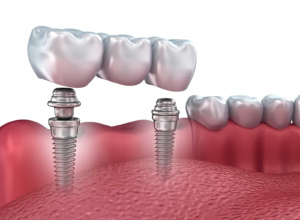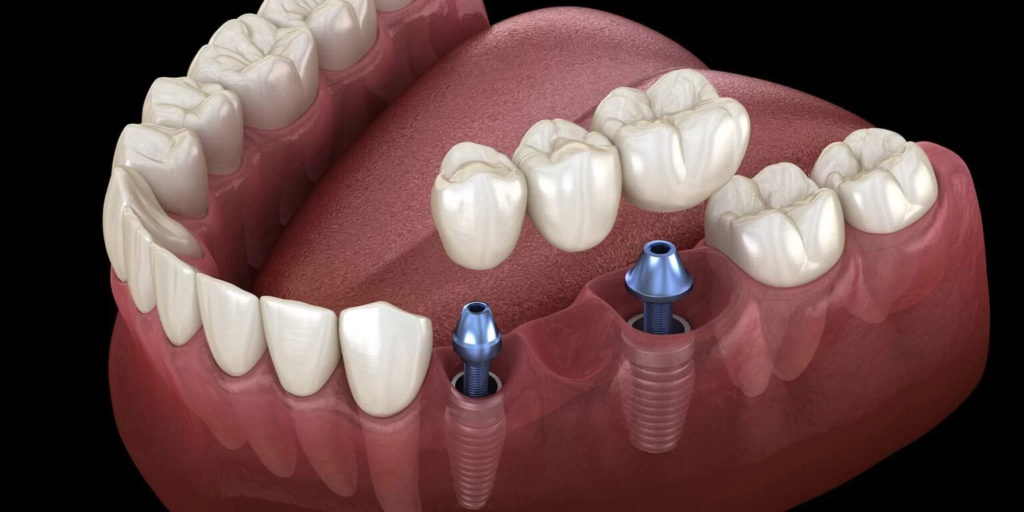In the realm of modern dentistry, the quest for optimal tooth replacement solutions has led to significant advancements. Among these, dental implants have emerged as a leading choice due to their durability and functionality. This article delves into a comprehensive comparison of dental implants versus other tooth replacement options, highlighting the pros and cons of each to provide a clear understanding for those navigating their choices.

Understanding Dental Implants
Dental implants are sophisticated medical devices designed to replace missing teeth. The implant itself consists of a titanium post that is surgically embedded into the jawbone, acting as a replacement root. Once integrated with the bone, a crown is attached to the implant to restore the tooth’s function and appearance.
Pros of Dental Implants
- Durability and Longevity: Dental implants are renowned for their longevity. With proper care, they can last a lifetime, surpassing the lifespan of other tooth replacement options.
- Natural Functionality: Implants function like natural teeth, providing the same chewing efficiency and comfort. They also help maintain bone density by stimulating the jawbone.
- Aesthetic Appeal: The crowns used in implants are custom-made to match the natural teeth, ensuring a seamless and aesthetically pleasing result.
- No Impact on Adjacent Teeth: Unlike dental bridges, implants do not require alteration of adjacent healthy teeth, preserving overall oral health.
Cons of Dental Implants
- Cost: Dental implants are typically more expensive than other options, including dentures and bridges. This cost includes the implant, the abutment, and the crown.
- Surgical Procedure: The implantation process involves surgery, which carries inherent risks and requires a recovery period.
- Bone Health Requirement: Successful implantation depends on sufficient jawbone density. Individuals with bone loss may require additional procedures, such as bone grafting.

Comparing with Other Tooth Replacement Options
1. Dental Bridges
Dental bridges consist of a false tooth, known as a pontic, which is anchored by crowns placed on the adjacent teeth. This option provides a solution for one or more missing teeth.
Pros of Dental Bridges
- Lower Initial Cost: Generally, bridges are more affordable than implants, making them a viable option for those with budget constraints.
- Non-Surgical: The placement of bridges is a non-invasive procedure, avoiding the need for surgery and the associated recovery time.
- Quick Results: The process of obtaining a dental bridge is usually faster compared to implants, often requiring fewer visits.
Cons of Dental Bridges
- Adjacent Tooth Impact: The procedure involves altering adjacent teeth, which may compromise their structure and health.
- Limited Longevity: Bridges typically have a shorter lifespan than implants, ranging from 5 to 15 years.
- Bone Loss: Bridges do not address bone loss in the jaw, which can lead to further dental issues over time.
2. Dentures
Dentures are removable appliances designed to replace missing teeth and can be either full or partial, depending on the number of missing teeth.
Pros of Dentures
- Cost-Effective: Dentures are usually the least expensive option for tooth replacement, providing a budget-friendly solution.
- Non-Invasive: The fitting of dentures is a non-surgical procedure, which may be preferable for individuals averse to surgery.
- Adjustable: Dentures can be adjusted or replaced easily, accommodating changes in the mouth’s structure over time.
Cons of Dentures
- Comfort and Stability: Dentures may not offer the same level of comfort and stability as implants or bridges. They can shift or cause irritation.
- Maintenance: They require regular removal and cleaning, which can be cumbersome compared to permanent solutions.
- Bone Resorption: Like bridges, dentures do not prevent bone loss, which can affect their fit and function over time.
Conclusion
When evaluating tooth replacement options, dental implants services stand out for their durability, functionality, and natural appearance. However, they come with a higher initial cost and require surgery. Dental bridges and dentures offer viable alternatives, each with its own set of advantages and drawbacks. Bridges are less expensive and quicker to fit but impact adjacent teeth and may not last as long. Dentures provide a budget-friendly, non-invasive option but may lack the stability and comfort of implants.
Ultimately, the choice between dental implants and other tooth replacement options should be guided by individual needs, preferences, and financial considerations. Consulting with a dental professional is essential to determine the most suitable option based on specific oral health conditions and personal goals.
